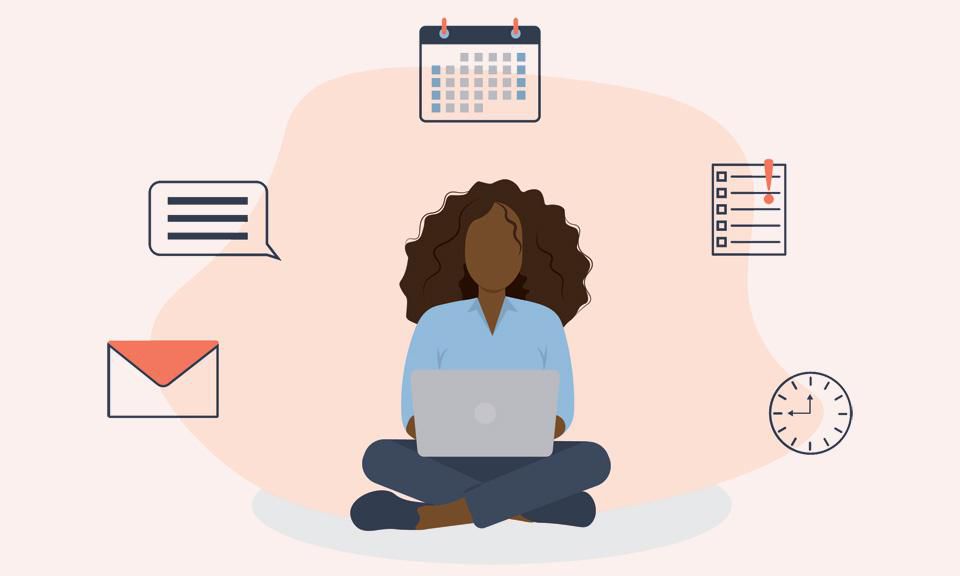
Many of us have experienced high stress levels for so long that it has become our normal, but it … [+]
iStock
Did you know April is Stress Awareness Month? If your reaction to that is to roll your eyes and think, “I’m aware of my stress every month,” I can relate — and so can most of the working women I know. Many of us have experienced high stress levels for so long that it has become our normal, but it doesn’t have to be.
In a recent viral post on LinkedIn, a HSBC manager in the U.K. described how after suffering a heart attack, one of his first thoughts was, “I needed to meet with my manager tomorrow, this isn’t convenient.” The experience motivated him to restructure his approach to work, but if you’ve been living in a state of constant stress, please don’t wait for a medical emergency to rethink your priorities.
In honor of Stress Awareness Month, I reached out to a few women leaders in the Forté community to hear how they cope with stress, and I used their tips to compile the following list. I encourage you to make these five small changes to your daily routine.
1. Take control of your time.
Danielle Hunt, Associate Brand Manager at Ocean Spray Cranberries, says, “One of the things that has been beneficial in managing stress for me is removing incoming email notification alerts. This way, I am not constantly getting distracted by incoming messages and can concentrate on the task at hand.”
I used to think that the more I got done, the better. But countless books, articles and even “time-management” trainings have helped me realize that by giving my focused attention to one thing at a time, I create more value for Forté and less stress for myself.
2. Give yourself (and others) grace.
Stacie Sasaki, Talent Acquisition, Campus Recruiting, at PIMCO, suggests, “Take a step back from trying to manage everything to perfection, and be okay with ‘good enough’ sometimes.”
Sasaki also emphasized the importance of treating your coworkers with compassion. She says, “We never know what is going on in the mind or heart of another person. Giving others the benefit of the doubt does wonders to avoid unnecessary stress.”
3. Trust your tools.
When you find apps, software, and other tools that make your life easier, use them every day. When Hunt has something on her mind at night, she jots it down before bed, so she won’t lie awake thinking about it. She says, “I am indicating to my brain that I will get to it tomorrow so it can now rest.” This is a great habit to start, whether you use a notebook or the Notes app on your phone.
Sasaki uses technology to help her lower her stress level throughout the day. She says, “My Apple Watch reminds me to exercise, stand up, and breathe.”
4. Establish boundaries.
Today’s virtual workplaces come with increased flexibility, but that can make it easier for work to creep further and further into your personal time. Set a clear work schedule for yourself, and resist the urge to check email or catch up on projects after hours. If you burn out because you’re working too much, nobody benefits. Your company and your colleagues want you at your best—and that requires rest and downtime.
In Shonda Rhimes’ book Year of Yes, the ultra-successful TV producer shared her email signature: “Please Note: I will not engage in work emails after 7 pm or on weekends. IF I AM YOUR BOSS, MAY I SUGGEST: PUT DOWN YOUR PHONE.”
A recent email from a colleague had a similar signature line: “I’m sending this message at a time that suits me. I don’t expect you to read, reply, or take any action about this outside of your normal working hours.” Both messages are great examples of setting boundaries and setting an example for your team.
5. Live mindfully.
Pay attention to how your daily activities affect your mood and stress level, both positively and negatively. Sasaki says, “I have cut out things outside of my control that can elevate existing stress or create additional stress like reading or following random news or posts on social media.”
Instead, do something you find fun or calming. Hunt finds adult coloring books helpful. She says, “It’s a great way to feel like a kid again, while also generating mindfulness and quietness after a long day. Who said you are ever too old to color?”




